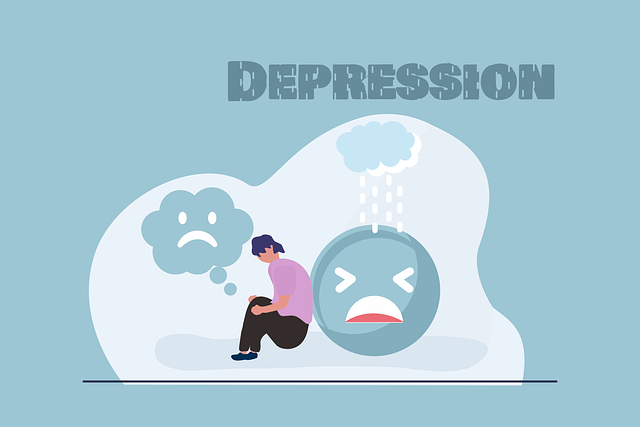Superior Hypnosis Therapy offers a novel approach to trauma recovery by accessing and reprocessing subconscious traumatic memories, providing a non-invasive method to reduce emotional impact. This holistic therapy, combined with emotional intelligence strategies and stress reduction techniques, creates a safe environment for individuals to regain control over their well-being. By addressing underlying beliefs shaped by trauma, it facilitates resilience rebuilding and enhances mental wellness, while its cultural competency training ensures tailored care for diverse backgrounds. Measuring success through regular assessments and stigma reduction efforts further improves therapeutic outcomes.
“In addressing the far-reaching consequences of trauma, understanding its intricate impacts on individuals is paramount. This article explores an integral aspect of mental health care: trauma support services provision. From recognizing the profound effects of traumatic experiences to investigating innovative treatment methods like Superior Hypnosis Therapy, we delve into effective strategies for recovery. Additionally, it highlights best practices for delivering supportive services, emphasizing safe environments, and measuring success, ultimately aiming to enhance accessibility and outcomes in trauma care.”
- Understanding Trauma and Its Impact
- The Role of Superior Hypnosis Therapy in Trauma Recovery
- Accessing and Delivering Effective Support Services
- Creating a Safe and Therapeutic Environment
- Measuring Success and Continuous Improvement
Understanding Trauma and Its Impact

Trauma is a profound and complex experience that can leave individuals feeling overwhelmed and disconnected from their emotions. It’s crucial to understand that trauma doesn’t just impact the mind; it can also manifest physically, leading to various health issues if left unaddressed. This is where superior hypnosis therapy steps in as a transformative tool. By inducing a state of deep relaxation, hypnosis allows for direct access to the subconscious mind, where traumatic memories are stored. Here, specialized therapists employ techniques like reprocessing and reframing these memories, helping clients gain new perspectives and heal from past traumas.
Emotional intelligence plays a pivotal role in trauma support. Empathy building strategies, such as active listening and non-judgmental presence, create a safe space for individuals to express their feelings. Combined with stress reduction methods like guided meditation and deep breathing exercises, these approaches foster resilience and promote healthy coping mechanisms. Ultimately, understanding trauma and its impact is the first step towards recovery, enabling individuals to reclaim their well-being through innovative therapeutic practices.
The Role of Superior Hypnosis Therapy in Trauma Recovery

Superior Hypnosis Therapy plays a significant role in trauma recovery by accessing and reprocessing traumatic memories stored in the subconscious mind. This non-invasive approach allows individuals to confront and reframe these memories, reducing their emotional impact. Through hypnosis, individuals can gain profound insights into their experiences, fostering self-reflection and self-acceptance. By addressing underlying beliefs formed during traumatic events, Superior Hypnosis Therapy aids in rebuilding resilience and enhancing overall mental wellness.
This therapy also complements other trauma support services by offering a unique method for self-esteem improvement and mental illness stigma reduction efforts. It empowers individuals to take control of their healing journey, providing them with valuable tools for managing symptoms and promoting mental wellness. Additionally, hypnosis can be integrated into practices like Mental Wellness Journaling Exercise Guidance, enhancing the overall effectiveness of trauma recovery programs.
Accessing and Delivering Effective Support Services

Accessing effective trauma support services requires a thoughtful approach, especially when addressing complex emotional needs. Many individuals struggle with trauma-related issues, and recognizing the signs is the first step towards healing. Superior Hypnosis Therapy has emerged as a valuable tool in this context, offering a unique and profound method to process traumatic experiences. This therapy facilitates deep relaxation and enhanced focus, allowing individuals to confront and release repressed memories and emotions.
Delivering support services with a cultural competency mindset is essential. Healthcare providers play a pivotal role in creating safe spaces for vulnerable populations. Training in Emotional Intelligence equips professionals with the skills to understand and respond sensitively to diverse client needs. By integrating such training with robust Stress Management techniques, providers can offer tailored care that respects individual journeys towards recovery. This holistic approach ensures that trauma survivors receive comprehensive support, fostering resilience and empowering them to rebuild their lives.
Creating a Safe and Therapeutic Environment

Creating a safe and therapeutic environment is paramount when providing trauma support services. This involves fostering an atmosphere where individuals feel secure, understood, and respected, which are all essential for effective healing. Through techniques such as Superior Hypnosis Therapy, mental health professionals can help clients reach a state of profound relaxation, enabling them to confront and process traumatic memories with greater ease. By promoting a sense of calm and control, these therapeutic interventions not only alleviate symptoms but also enhance the overall mental health awareness of individuals dealing with trauma.
Additionally, ensuring a safe space goes beyond words and actions; it includes rigorous risk management planning for mental health professionals. This involves implementing strategies to safeguard clients from potential triggers or retraumatization. By combining effective therapies like Superior Hypnosis Therapy with robust risk management practices, trauma support services can provide the highest level of care, fostering self-esteem improvement and promoting resilience among those who have experienced traumatic events.
Measuring Success and Continuous Improvement

Measuring success is a crucial aspect of trauma support services provision. Superior Hypnosis Therapy, as a specialized approach, relies on quantifiable outcomes to assess its effectiveness. This involves tracking client progress through regular assessments, tracking improvements in symptoms like anxiety, depression, and flashbacks. By utilizing evidence-based measurement tools, healthcare providers can gauge the impact of therapy and identify areas for refinement. Continuous improvement is fostered when these insights are utilized to adapt treatment strategies and personalize care for each individual’s unique needs.
Integrating Cultural Competency Training for healthcare providers plays a pivotal role in this process. Enhanced emotional intelligence, cultivated through such training, enables practitioners to understand and respond sensitively to the diverse cultural backgrounds of clients. This cultural awareness contributes to more accurate diagnoses and tailored interventions, thereby improving therapeutic outcomes. Additionally, Mental Illness Stigma Reduction Efforts are integral to fostering an inclusive environment where clients feel safe and supported in their journey towards healing, further enriching the overall success of trauma support services.
In conclusion, trauma support services play a pivotal role in helping individuals heal from profound emotional scars. By integrating evidence-based practices like Superior Hypnosis Therapy and prioritizing safe, therapeutic environments, we can significantly enhance recovery outcomes. Continuous improvement through measurement and access to quality resources ensures that those affected by trauma receive the effective care they deserve, fostering resilience and restoration.














